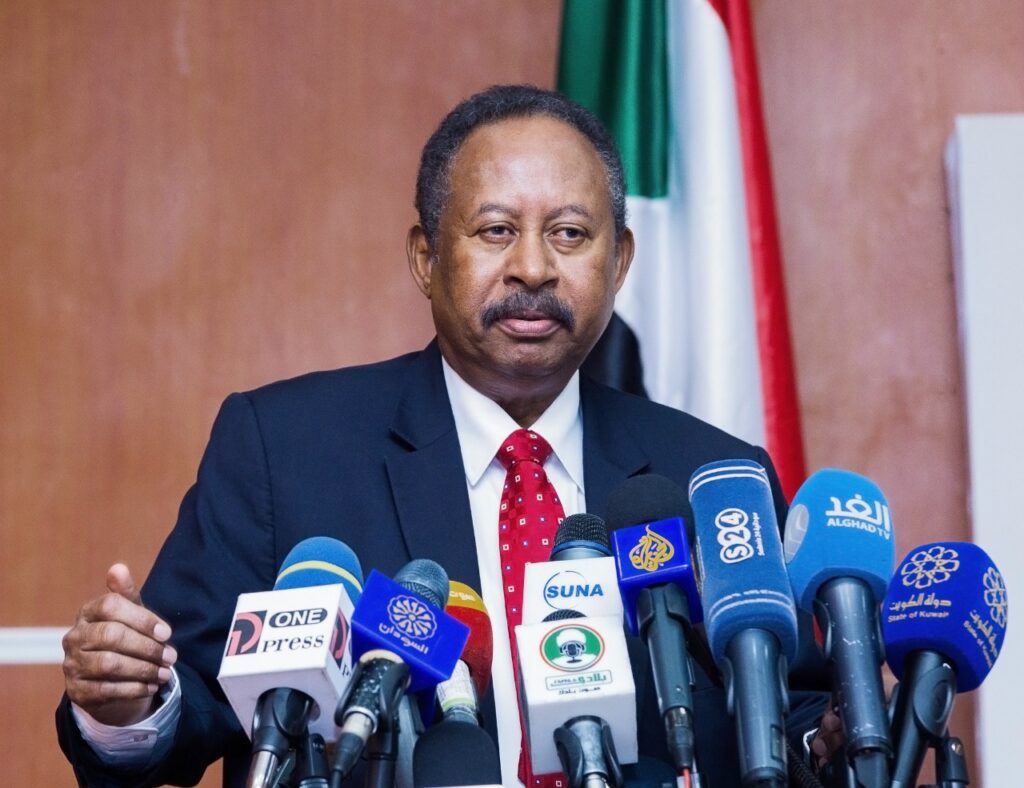In an unfortunate turn of events, Sudan has again reached the world headlines. The news that the Sudan military arrested the prime minister ― and other political and government administrators ― turned the country on its head. As a result, many civilian leaders and foreign diplomats have declared the situation a coup d’état, calling for the immediate release of the detainees.
The country’s top general declared a state of emergency, asserting that the military had to intervene due to strife between Sudan’s political factions. He also promised to continue leading the country to democracy ― but also stay in power until elections in July 2023.
Only moments before the military forcefully took him, prime minister Abdalla Hamdok called upon the people to “defend their revolution.” There he referred to the 2019 event that facilitated the return of civilian democracy in the country. Many believe this to be a turning point in the nation’s history after a 30-year dictatorial rule.
Quick fact: The civilian-military coalition that led the country until now was riddled with power struggles and in-fighting. Several independent observers claim this to be one of the pervading reasons for the current situation.

Left to fend for themselves and without a functioning government, the Sudanese people are now trying to figure out the consequences of dismantling the current power structures.
To make matters more acute, before the Sudan military arrested the prime minister this year, the man also recently survived:
- An assassination attempt in 2020, and
- Another intervention to overthrow his leadership just a month ago.
Interestingly, prime minister Abdalla Hamdok used to work as a UN diplomat. After resigning from the post, he spearheaded Sudan’s transition from the decades-long military and autocratic rule toward democracy after the 2019 revolution.
The Aftermath
The country is now teeming with protests, most notably in Khartoum and Omdurman, two of the most populated cities. On that note, Sudan’s leading pro-democratic political group, the Sudanese Professionals’ Association, insisted that citizens leave their homes and join protests to oppose the fact that Sudan armed forces arrested the prime minister and his cabinet members.
Some media sources state that military forces have cordoned off the capital city’s Khartoum International Airport. Similarly, others report that major airlines are suspending their flights.
After the Sudan military arrested the prime minister, crowds gathered in many streets. Civilians burned tires and blocked roads while military personnel had taken over bridges. By doing so, they have effectively paralyzed any motorized movement in major cities throughout the country.
From a security standpoint, it is also worrying that significant disruptions to internet connections across the country are taking place. The connectivity issues span mobile and fixed-line devices. Consequently, international staff and foreign business executives may also experience changes in their operations.
Finally, world powers and international organizations are calling for democracy. But how the events will unravel in the following days remains unclear. Nevertheless, many political pundits say that the peaceful situation in Sudan was just temporary. In fact, they claim that everyone expected it to explode shortly, as it did.
What do you think about the current situation in Sudan? How will it affect travel to the country and the surrounding African regions?





